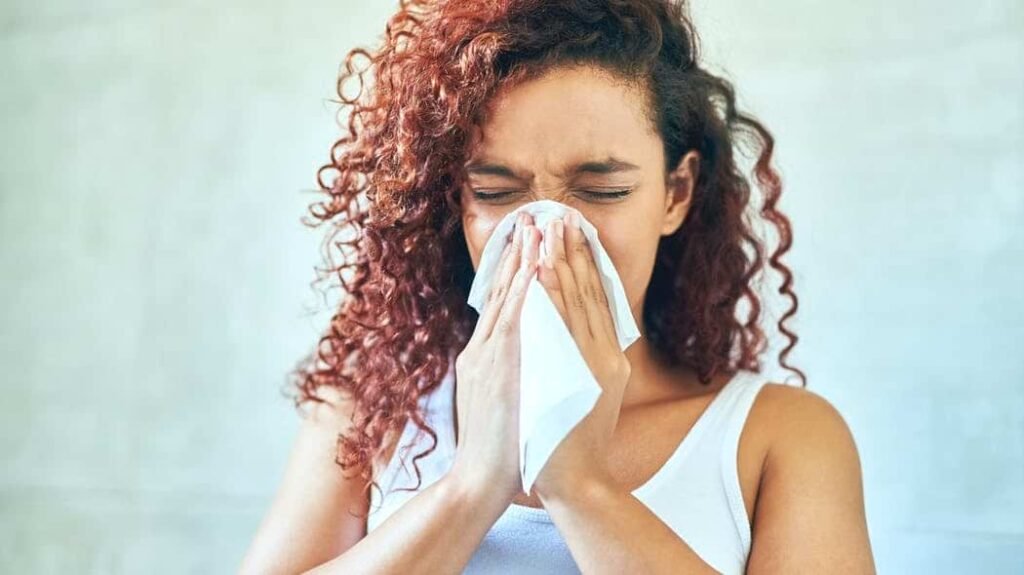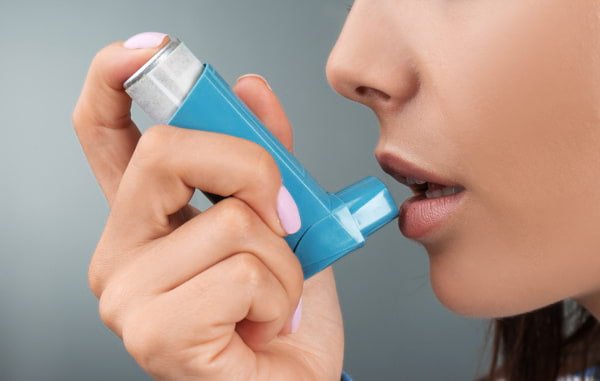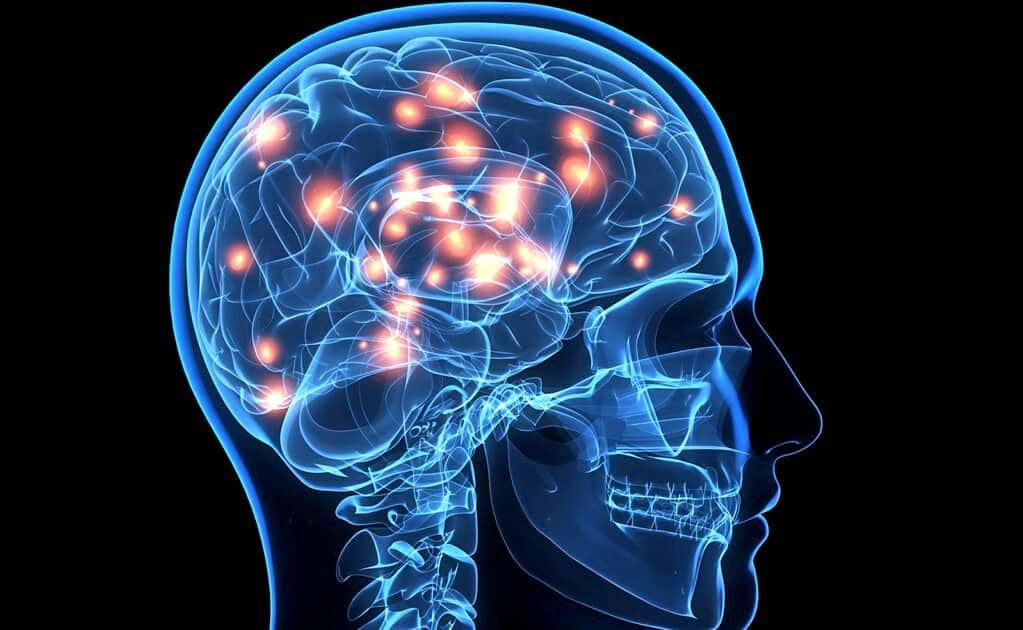Allergy or covid-19: how to tell the difference? what prevention?
Allergy or Covid-19 ? With the arrival of spring, the circulation of pollens responsible respiratory allergies is accelerating. Covid-19 can cause symptoms similar to rhinitis or allergic asthma but how to differentiate them? What precautions should be taken?

Allergy is considered by the World Health Organization (WHO) to be the fourth chronic disease in the world after cancer, cardiovascular disease and HIV / AIDS. In this epidemic of covid-19, people affected by rhinitis or allergic asthma may be confused. In reality, the symptoms of Covid-19 and respiratory allergies are somewhat different.
How do you differentiate the symptoms of a pollen allergy and Covid-19?
Spring is conducive to the development of rhinitis, conjunctivitis and asthma in allergic patients due to the arrival of pollens. Coughing and wheezing, these symptoms can be confused with those of covid-19. What are the main symptoms of allergic rhinitis (hay fever)?
Main symptoms of allergic rhinitis (hay fever)
Allergy can take the form of rhinitis. The symptoms are then sneezing, a runny or blocked nose regularly and itching. The most famous allergic rhinitis is hay fever, caused by grass pollen, which occurs every year.
In addition to these typical symptoms of a seasonal allergy, respiratory allergy can also manifest as conjunctivitis and, above all, cause an asthma attack with difficulty in breathing, accompanied by wheezing and shortness of breath, whether or not associated with cough.
Main symptoms of Covid-19
The main symptoms of covid-19 are fever, fatigue, headache, cough and sore throat, body aches, and difficulty breathing. Skin or digestive disorders (diarrhea, nausea) can also alert. But also in some cases loss of smell (anosmia) or loss of taste (ageusia) without nasal obstruction
Fever and body aches can tell the difference
While coughing can occur in people predisposed to asthma or allergic rhinitis, body aches, chills and fever are more specific and are more indicative of a coronavirus infection. In people with chronic allergies, a differentiating factor may be the unusual nature of the symptoms, especially the cough, compared to previous years. To dispel any doubt, perform an antigenic screening test or PCR to find out if you have contracted covid-19.
Should I be concerned about loss of smell?
The loss or reduction of smell with nasal obstruction (stuffy nose) in case of allergy is well known and recognized by allergic patients. However, loss of smell (anosmia) or loss of taste (ageusia) without nasal obstruction are not symptomatic of the allergy and may therefore mean that you have contracted covid-19.
If you have any doubt, the best reflex is either to telephone to your attending physician. If in the meantime you’re facing respiratory problems, call the 911.
Are allergic patients more at risk of catching Covid-19 and developing a severe form?
Patients with respiratory or food allergic manifestations are not more at risk to the Covid 19. They are neither more likely to catch it, or more likely to develop serious forms.
Some people will be at higher risk of more severe symptoms, particularly those with compromised respiratory function or immune system.
Is asthma an aggravating factor ?
It is strongly recommanded and important to ensure that asthma is as well controlled as possible. This means ensuring to take regular medications as prescribed and using any devices advised. In any case a healthcare professional must be contacted for further instructions
An idea to prevent respiratory allergies during pollen season?
Epidemic or not, many tips can limit the effects of pollens, notes Asthma & Allergies:
- Open your windows early in the morning, late at night, but avoid opening them in very strong winds.
- Rinse your hair before bed to avoid depositing the pollen accumulated throughout the day on the pillow.
- Do not dry your laundry outside during pollen peaks. Do not mow the lawn yourself and throw the cut grass in the trash.
- Check the pollen alert level on the AAAAI (American Academy of Allergy Asthma & Immunology. Wearing a mask is beneficial.
Note: in the event of respiratory allergies, it is advisable to avoid the diffusion of incense, essential oils or sanitizers.
Asthma: do you have asthma without knowing it?
In the minds of many, a person who does not have wheezing attacks does not have asthma. This idea is totally wrong. You can have asthma without having a seizure. Here an update on the signs and symptoms that should alert you.

Yet a millions of them are unaware that they suffer from this chronic respiratory disease. Some people live with a little shortness of breath which over time worsens without further manifestation.
More and more seniors affected
One of the reasons for this non-diagnosis: the misconception that we cannot develop asthma at a mature age. Again, this is a mistake …disease can start for the first time after 50 years. Allergic manifestations increasingly affect people aged 60, 70 or even 80, which consequently increases the risk of developing late-onset asthma.
In addition, hormonal changes (menopause, for example) have an impact on the lungs, there are twice as many people aged 55 who suffer from asthma than people aged 45. Besides the daily discomfort, without treatment, some problems can become a medical emergency. Going for a consultation and being treated is therefore an imperative.
what are the symptoms?
Warning symptoms:
- You seek your breath.
- You have suffered from a dry, quintuous cough at night for several months.
- You cough as soon as you make an effort or exercise.
- You have recurring episodes of chronic bronchitis.
Two types of drugs are used
- The bronchodilators relax the muscles and open the narrowed bronchi. They have an action of 3 to 12 hours and immediately relieve a crisis.
- Anti-inflammatory drugs treat the background of the disease. These are inhaled corticosteroids and antileukotrienes.
If you have experienced any of those symptoms , get close to your doctor. Today with an appropriate treatment, people are living in a normal way.



